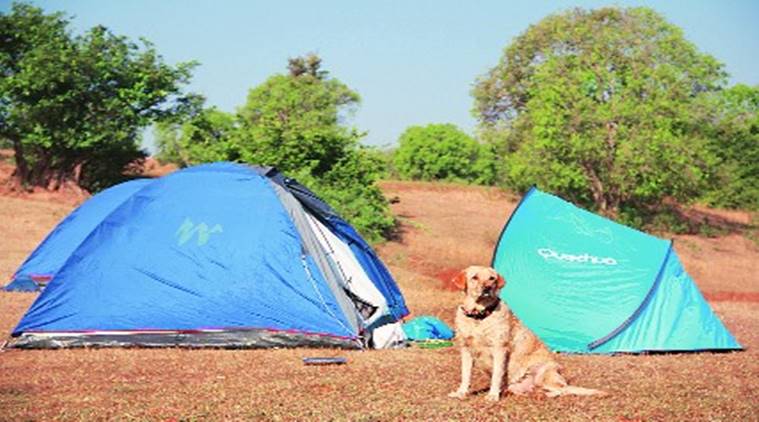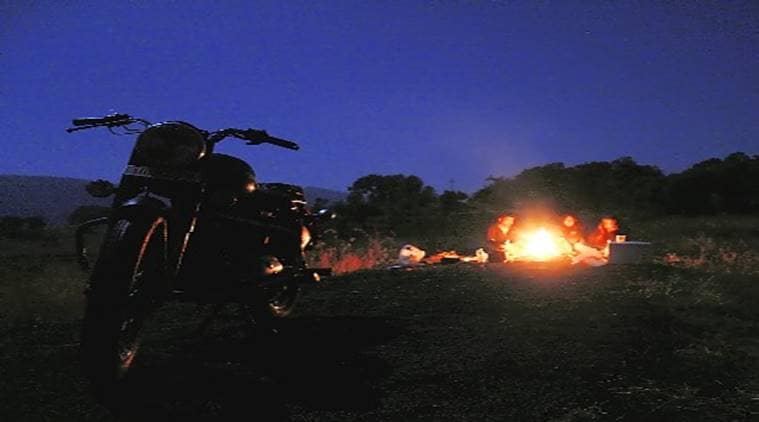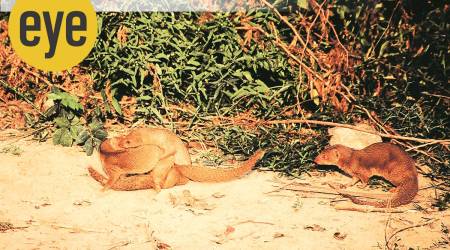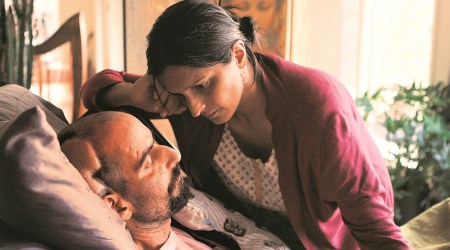What draws city dwellers to go on camping trips
Sometimes, you can seek nature — and yourself — in your backyard.
 Open skies: The chance to experience solitude, even when enjoying the camaraderie of friends, is what attracts city dwellers to camping. (Photos: Adityavikram More)
Open skies: The chance to experience solitude, even when enjoying the camaraderie of friends, is what attracts city dwellers to camping. (Photos: Adityavikram More)
Coming from a family of naturalists and some of the earliest big game-hunters-turned-conservationists of India, “the great outdoors” was more of a way of life for my clan rather than a modern-day fad. My father would take us to the jungles every summer vacation. Sleeping on open terraces in forest rest houses, waiting for a flurry of breeze to cool our sweat-drenched skin, chasing away scorpions before sitting stone-still for our night watches over waterholes, birds dropping half-eaten fruits on us from stately banyan trees, roughly-hewn Indian toilets and thick village rotis, swarms of mosquitoes at dusk and tangy ber pulp in hot afternoons were my usual summer days.
And then, I shifted base from one of the oldest hill ranges of the world — the Aravallis — to the big boss of Indian metropolitans — aamchi Mumbai — where the buzz of bees was replaced by the drone of ACs and the frenzied activity of ant colonies by the ceaselessly heaving tide of humanity. I continued to go on occasional visits to the dry deciduous forests of my childhood in southern Rajasthan. That’s what made a friend in Mumbai suggest a camping trip to another friend’s piece of land by a nameless lake deep into the countryside. I was not entirely sure about camping, but was finally coaxed into it.
A motley crew of a chef, a biker, a photographer, a painter, a dreamer (yours truly), a go-getter and the friend who owned the land, armed with camping gear, started in a Jeep and two bikes one early morning towards Nashik. We stopped a couple of times for meals and steaming cups of masala chai before we left the highway and went past an old broken bridge into the swaying fields and little hamlets. We headed towards the small village of Awata, crossing water bodies, a few undulating hills and the sprawling waters of a river that has been dammed.
While we may like to believe we were “roughing it out”, my father would choke on the amount of raw food, water and alcohol we carried. But us being no explorers, we got our kicks from the prospect of sleeping under the sky. Ah, that beautiful, beautiful evening by the rippling waters! We decided to camp by the lake in a clearing, surrounded by tall, golden hay stacks. I lay back and dug my heels into the dirt as the Flintstones took over — the seasoned campers erected the tents, lit a fire and prepared for the barbecue and the experienced helpers cut vegetables and opened the spirits. While others worked, I lounged on the hay telling myself that if things ran this way, I could get used to roughing it out more often.
 A bonfire blazed in the clearing, as everyone raised their paper cups to their lips often. (Photos: Adityavikram More)
A bonfire blazed in the clearing, as everyone raised their paper cups to their lips often. (Photos: Adityavikram More)
When night fell, the sky was a scattering of stars. Cold breeze made goosebumps on our skin. Bats flitted about on leathery wings. The distant hills looked dark and brooding. A bonfire blazed in the clearing, as everyone raised their paper cups to their lips often. The muscular gowti (country) chicken, which had been procured from the village nearby, sizzled in the smouldering coal. Some of us dipped our feet in water, one went for a night swim, others told stories of crushes and ruined loves and shared their dreams. We were happy and high and just short of seeing elves and fire-breathing dragons in the night. The blood-red moon rose in the wee hours of the morning as everyone finally crashed.
We woke up when the sun beat down on our tents, converting it into an oven. We wormed our way out, wondering if the cold night was a dream. This was nothing like my jungle visits or glamping, yet it rang true. Perhaps, that’s what draws some city dwellers to a few days of raw existence. Sometimes, you don’t want to make sense of the world but immerse yourself in its abstractions. You want to enjoy not just the camaraderie of friends but also the solitude; search for interstellar worlds in the night sky; explore not only what lies without, but also what lies within.
Arefa Tehsin is a Colombo-based author and an environmentalist.
This article appeared in print with the headline ‘Around a Campfire’



































